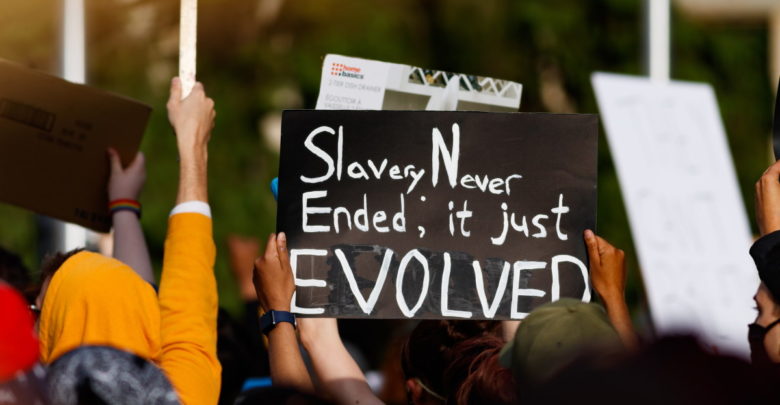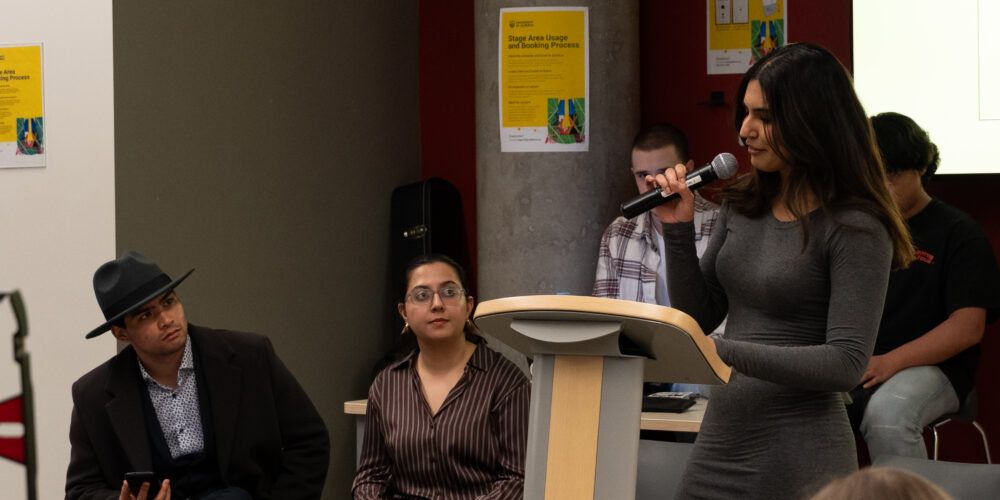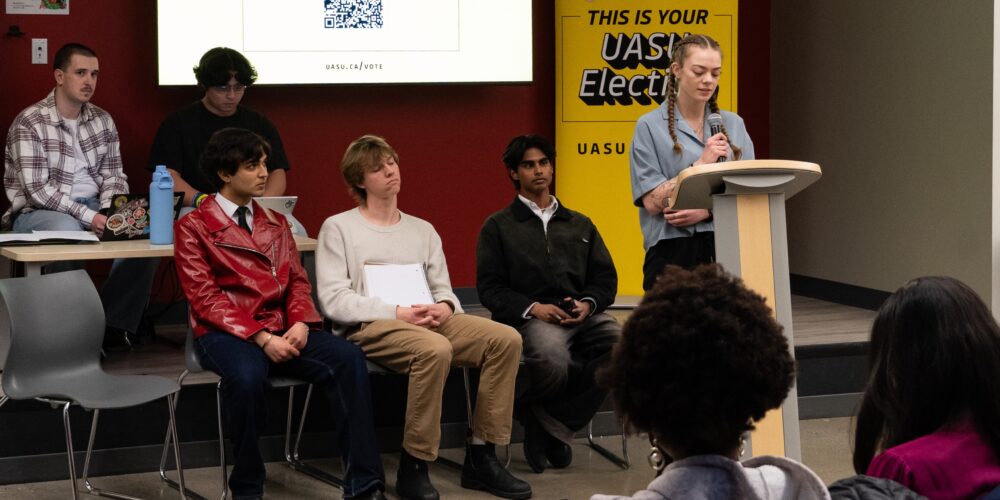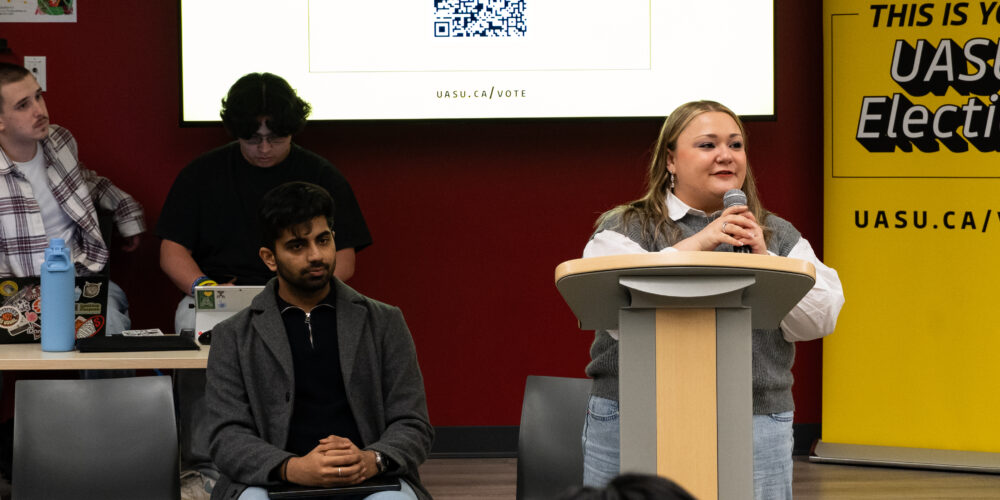Editorial: Our institutions fail Black people
George Floyd's murder is the latest reminder of how our institutions fail to value Black lives
 Christien Ford
Christien FordIf there was any doubt as to whether the police motto “to serve and to protect” is a conditional statement, it was put to rest with the murder of George Floyd.
On the evening of May 25, 2020, four Minneapolis police officers were called to a convenience store regarding an alleged forgery by George Floyd. Within minutes of their arrival, the officers handcuffed and pinned Floyd to the street. In a viral video taken by a passerby, two officers restrain Floyd’s back and legs while officer Derek Chauvin presses his knee into Floyd’s neck. Despite Floyd being accused of a non-violent crime, unarmed and already restrained, Chauvin’s knee remains on his neck. For seven minutes Floyd pleads for air, but it is not until paramedics arrive on the scene that Chauvin releases Floyd, long after he has gone silent and his body limp. He is pronounced dead at 9:25 p.m. upon arrival at the Hennepin County Medical Center. He was a Black man.
With every minute that Chauvin pressed his knee into Floyd’s neck, he further emphasized not only his own evaluation of a Black life, but that of the institutions he represents. Recently, we have seen the United States erupt in protests in response to Floyd’s murder, and in almost every case police have met demonstrators with a tyrannical aggression reserved exclusively for Black people. Whether it is police plowing cruisers into protestors, macing civilians or assaulting pedestrians, it has become an undeniable reality that our institutions are not designed to serve or protect Black people.
The George Floyd protests are the latest reopening of a centuries-old wound, and the brutality of his murder is the exclamation point on a year that has reminded us of how consistently our institutions fail Black people. On the healthcare front, Black people encounter a system so fundamentally prejudiced that it can manufacture racial genocide out of a viral infection. Despite living in a democracy, African-Americans are represented by a system rooted in their dehumanization which gerrymanders and purges their voices of any potency. They are targeted by the penal system, while the police openly assault, molest and humiliate them. They are functionally barred from the “free” market, and its adherents go to any lengths to ensure their exclusion. Even the arts, a field which Black people have expanded and enriched immeasurably, remains a prime territory for cultural looting.
Time and time again our systemic shortcomings reaffirm that Black people have no institutional route for recourse. On either side they face either the bared teeth of explicit racism, or the paper-thin smiles of neoliberals who pay lip service to Black empowerment while working towards its demise. It is plainly obvious that when a people are so effectively boxed-in for over 400 years they will eventually break out into action, and that is exactly what we are seeing now. This is the coming fire that James Baldwin warned America of almost 60 years ago. After almost two centuries of unsuccessfully pleading for air to the government, the market and the law, Black people have been left to riot, or as Dr. King called it, to speak “the language of the unheard.”
There are some who see the chaos sweeping across the United States and call for civility and rule of law. For the more insidious among them it is a thinly-veiled call for violent repression, while for the others it is a tired appeal to return to the comfortable, slow-going pacifism that defined the Civil Rights era. Both ultimately work to preserve the status quo, one side is just willing to break a few more eggs to do it.
What neither sides acknowledges is that historically speaking, violence is the only language America understands. The 1968 Civil Rights Act was only signed after the mayhem of the King assasination riots, and the ending of chattel slavery — probably the most durable instance of racial progress in American history — came after a civil war that claimed 750,000 lives. I am not making a call to arms (although others have for much less), but I am simply pointing out that there is arguably nothing more patriotic and American than a grassroots rebellion against tyrannical institutions that fail their constituents.
I know that I have spent most of this article talking about the United States, but that is not to say Canada is blameless. We need to only go back to 2015 to find the story of Andrew Loku, a South Sudanese man shot and killed in his own home by Toronto police. As we go through the archives more names start appearing: Albert Johnson, Abdirahman Abdi, Kenneth Allen, Michael Eligon, Lester Donaldson, Jermaine Carby. Canada’s record regarding Black men is far from clean, and that is without mentioning our history of carding, mass incarceration, and our original sin, the continued dehumanization of Indigenous peoples (Bashir Mohamed’s site is a good place to learn more).
While the United States’ brand of anti-black racism is often open and violent, Canadians tend to casually sweep our history under the rug and deny it with an incriminating amount of vitriol. Even in Canadian campus settings like our own, Black students are often either underserved, mischaracterized or overlooked entirely.
If there is one thing that should be abundantly clear, it is that our institutions have not just failed Black people, but they were designed to do so. Like most machinery, our economic, political and judicial systems were built to serve the people who built them. And despite claims to the contrary, they were not created with some divine ability to accommodate and incorporate other races and nations — that would be a product defect.
So then what should we do? To be honest, I am not sure. The disenfranchisement of Black people is far older and larger than any of us, and it will take a sustained, equally large effort to overturn it. The one thing I can conclude — and must conclude in light of these past few weeks’ events — is that our salvation will not come from the institutions that have failed us. Let me be clear, there is still an important place for Black people in politics, law, business and even policing, but to think that any of these systems can achieve our collective empowerment is nothing short of cultural Stockholm syndrome. Race may be a social construct, but the weaponization of it is the foundation our Western societies are built on.
So, to once again attempt to answer the question of what we should do, I say protest, donate, hold your leaders accountable, vote, seek allies, buy intentionally, persist, and do it all with the cynicism of someone who knows they are holding a hairpin rather than a key. Black liberation will be a Black creation, not something handed down to us from the top-down. We may be a dispersed, diverse and displaced people, but we cannot forget that we are our own institution, and ultimately, the only one we can hope in.




